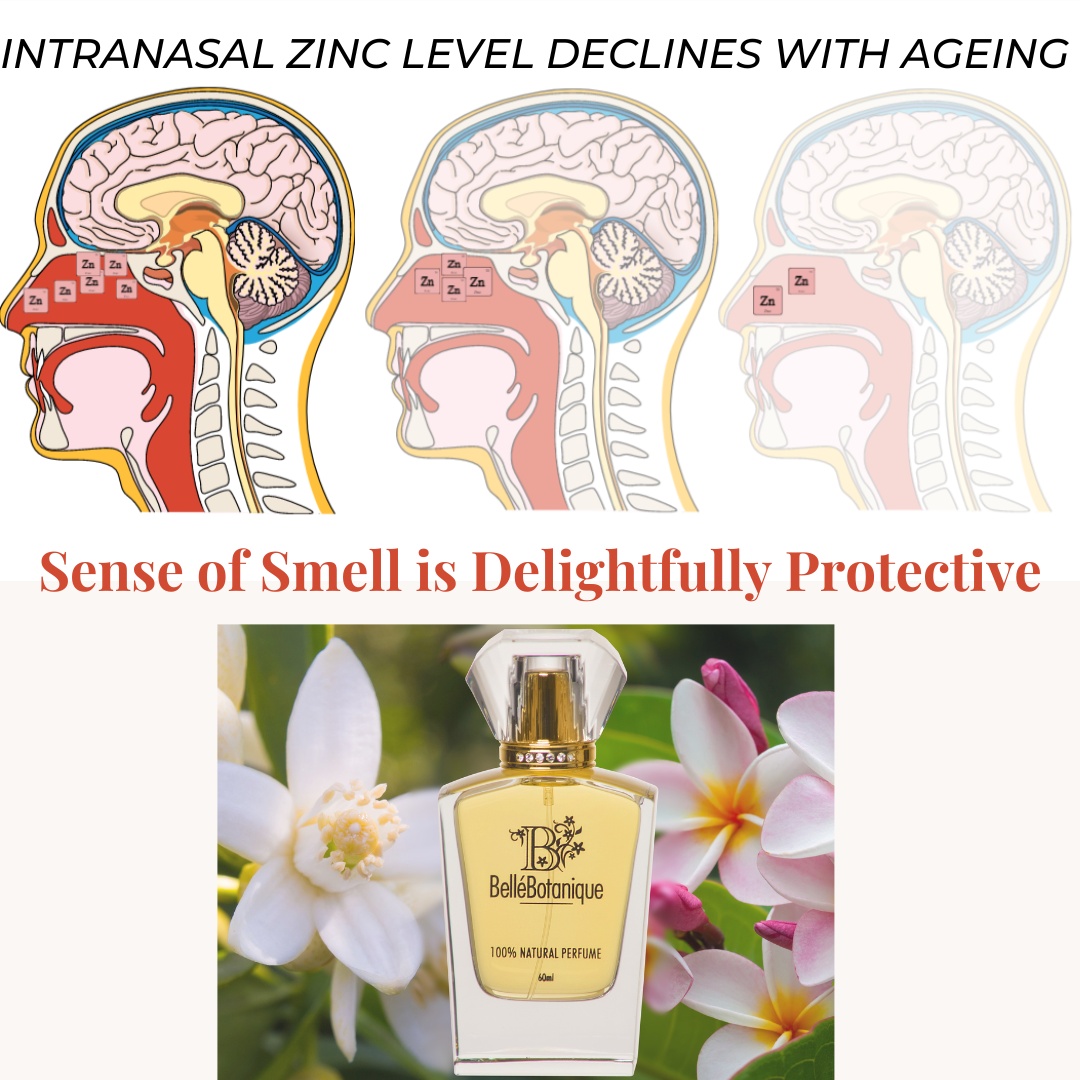Our sense of smell has protective properties, which is why it can be dangerous to lose its versatility. However, we must understand how vital this sensation is to our overall health and happiness, and its connection to micronutrient Zinc. Your ability to smell may deteriorate as you age. The senses of taste and smell are interconnected. Food may taste bland if your sense of smell is impaired, and even your desire to eat could be lost.
When describing the aroma of food, we frequently refer to it as tasting to denote experiences that are typically highly complex and comprise olfactory components.
Fragrances have traditionally been linked to pleasure in humans. The function of smell enhances and gratifies several elements of our existence, including adding a sense of flavour to foods. The complex sensory experience that is produced when we taste food is referred to as flavour or aroma. It includes not only olfactory and gustatory elements but also tactile ones (such as the crispiness of chips, crunchiness of biscuits, and melting softness of chocolate), temperature detection, and other sensory components. Above all, the wide diversity and delicate variations that we enjoy in our foods result from odours, which enter our noses through the palate and are frequently mistaken for tastes.
Nature’s aromas are mostly a chemical exchange between plants and animals; humans only listen in. Our mammalian noses are not tuned to particular olfactory transmissions, just as we are blind to certain patterns on a butterfly’s wing or the petals of a flower because we cannot see in the ultraviolet.
Proactive Zinc – ZINC – The Zigzag from Fresh Zing to Tasty Zang
A proper perception of taste and smell depends on the nutrient zinc. Because the body lacks a specific zinc storage system, a daily dose of zinc is necessary to maintain a stable state, according to the National Institutes of Health’s Office of Dietary Supplements.
Unfortunately, we as humans are progressively losing our sense of smell. Taste and smell disorders triggered by zinc deficiency continue to increase (Tomita, 1990).

As the average age of the world’s population rises to levels never encountered before, there is also a growing need to preserve our sense of smell and also a better understanding of the effects of ageing on olfactory acuity.
Diet and The Fragrance of Youth
An unbalanced diet, food & personal care additives, and drugs intake contribute to a decline in olfactory acuity. Growing evidence suggests that zinc deficiency can cause smell disorder, in some cases of olfactory epithelium disorders.
We know that the use of natural fragrances enriches our lives. Youth and beauty are associated with a refreshing fragrance, but death and decay with a bad smell. Who does not like a marvellous bouquet of scents emanating from fresh flowers? Let the fragrances of a vibrant garden, flowers, fruits, and woods diffuse all around you – as the scented journey of exploring Belle’Botanique’s distinctive, natural perfumes begins.
https://bellebotanique.com.au/product/discovery-collection-natural-perfume-collection/
Reference:
Tomita, H. (1990). Zinc in Taste and Smell Disorders. In H. Tomita (Ed.), Trace Elements in Clinical Medicine (pp. 15–37). Springer Japan.
Cheers,
Manoj Jain
Disclaimer: The ideas and advice in this article are based upon the knowledge of the author and the scientific information currently available. The suggestions in this article are definitely not meant to be a substitute for careful medical evaluation and treatment by a qualified, licensed health professional. The author does not recommend changing or adding medication or supplements
without consulting your personal physician. I specifically disclaim any liability arising directly or indirectly from the use of this information.
